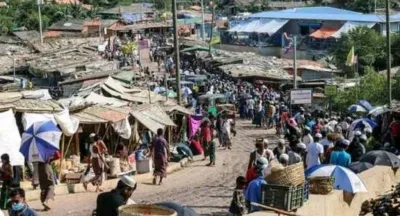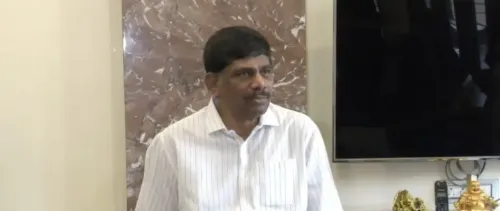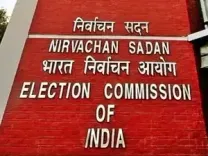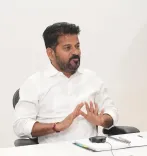Is PM Modi’s Warning on Illegal Immigration Justified?

Synopsis
Key Takeaways
- Prime Minister Modi highlights the risks of illegal immigration.
- Collaboration between ISI and DGFI poses a threat.
- Militant groups are involved in Rohingya infiltration.
- India has enacted the Immigration and Foreigners Act.
- Security measures are being strengthened.
New Delhi, Oct 2 (NationPress) Prime Minister Narendra Modi, during his address at the celebration of the RSS’ centenary, reiterated the critical issue of illegal immigration. This concern was also highlighted in his Independence Day speech. His consistent emphasis on this matter underscores the significant threat posed by illegal immigration to the nation. Various agencies have long warned that this issue is a calculated endeavor aimed at altering demographics and facilitating criminal activities within India.
The ISI of Pakistan, in collaboration with the DGFI of Bangladesh, has been strategizing to amplify the influx of illegal immigrants into India. Although many of these individuals originate from Bangladesh, there are now plans to escalate the number of Rohingyas from Myanmar entering India unlawfully.
Both the ISI and DGFI have enlisted the help of groups such as Harkat-ul-Jihadi Islami, Lashkar-e-Taiba, and Aqa Mul Mujahideen (AMM) to enact this strategy. These militant organizations intend to exploit the ongoing turmoil in Myanmar to recruit Rohingyas.
Many displaced individuals, affected by the unrest, are now potential targets. Security personnel have indicated efforts to amass a large number of these individuals in Bangladesh prior to their infiltration attempts.
As India already contends with the surge of Bangladeshi illegal immigrants, the addition of Rohingyas will further strain the system. Another tactic involves utilizing Rohingyas residing in Bangladesh for cross-border assaults against India.
Officials assert that Dhaka must not be complicit in this scenario. The repercussions could backfire, as radicalized Rohingyas may instigate violence within Bangladesh as well. The risk of escalating crime in a nation plagued by ongoing violence and radicalization is considerable. However, Indian agencies remain skeptical of Bangladesh's actions given the involvement of the ISI.
Since Muhammad Yunus assumed control of the interim government with support from Jamaat-e-Islami, he has developed closer ties with Pakistan.
With the Jamaat exercising influence, it appears unlikely that the Bangladeshi government will address the issue that jeopardizes India's national security. The number of camps for Rohingyas has surged since Sheikh Hasina was ousted. Training facilities for Rohingyas have emerged in locations such as Bagerha, Cox’s Bazar, and Mymensingh. These camps were established after discussions between ISI officials, Hafiz Saeed, and AMM commander Abu Aman Jununi, who hails from Myanmar but received training in Pakistan. His training is specifically aimed at recruiting Rohingyas and facilitating their infiltration into India, as well as executing terror operations.
In response to these threats, India has enhanced security measures and implemented the Immigration and Foreigners Act, which establishes stringent regulations concerning passports, visas, and immigration. The Union Home Ministry announced the rules of this act on September 1.
During discussions about the legislation, Union Home Minister Amit Shah affirmed that the government is open to welcoming those who wish to visit India for tourism, education, business, and healthcare.
However, he stressed that India is not a dharmashala. In 2023, investigations revealed that certain brokers in Tripura had been facilitating the illegal entry of Rohingya refugees.
These individuals would enter India through Assam as a transit point. The government has instructed agencies to crack down on these brokers and touts to mitigate the issue as much as possible.









